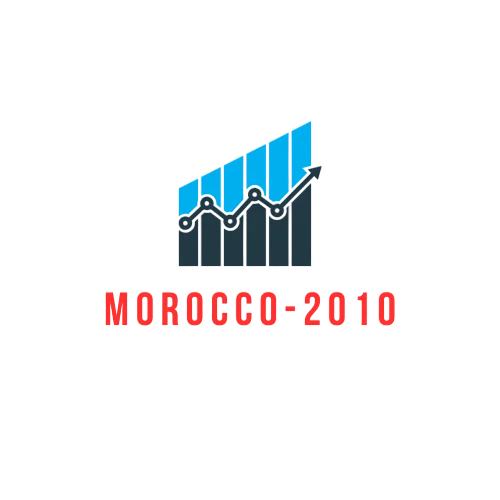In a world where investment options multiply faster than a cat video going viral, global equity funds stand out like a well-tailored suit at a pajama party. These funds offer a golden ticket to a diversified portfolio, allowing investors to dip their toes into international markets without needing a passport or a PhD in economics.
Imagine having a slice of the world’s most promising companies, all while sipping your morning coffee and pretending to understand your financial advisor’s jargon. Global equity funds not only spread the risk but also tap into growth opportunities beyond local borders. So, if you’re ready to take your investment game from “meh” to “heck yeah,” it’s time to explore the exciting world of global equity funds. Who knew investing could be this fun?
Table of Contents
ToggleOverview of Global Equity Funds
Global equity funds represent a vital investment tool for individuals seeking diversification. Investing in these funds grants access to international markets and a wide array of companies. Investors often find that global equity funds enhance their portfolios by incorporating stocks from various countries and regions.
Geographic diversity is a fundamental characteristic of these funds. By investing globally, individuals mitigate risks associated with regional economic downturns. Access to emerging markets may present additional growth opportunities.
Types of global equity funds vary, including actively managed funds and index funds. Actively managed funds aim to outperform benchmarks through strategic stock selection. Index funds, on the other hand, typically track specific indices, providing exposure to a broader market landscape.
Performance of global equity funds can be influenced by global economic trends. Economic indicators, such as GDP growth or inflation rates, often impact fund returns. Investors should monitor geopolitical developments, as these events can create fluctuations in market performance.
Management fees for global equity funds often differ based on the fund type and strategy. Actively managed funds tend to command higher fees due to the intensive research required. Conversely, index funds usually feature lower expense ratios, adding to their appeal for cost-conscious investors.
Investment horizons play a crucial role in selecting the right global equity fund. Long-term investors often benefit from exposure to the growth potential of companies in diverse economies. Short-term horizons might focus more on market timing and volatility considerations.
Understanding the objectives and parameters of each fund is essential. This knowledge aids in aligning investment strategies with individual goals. Global equity funds can be an attractive option for those looking to capitalize on worldwide market growth.
Benefits of Investing in Global Equity Funds
Global equity funds offer multiple advantages for investors looking to expand their portfolios. Investors can capitalize on diverse opportunities across various markets and sectors.
Diversification
Investing in global equity funds enhances portfolio diversification. Accessing markets in different countries reduces exposure to local economic downturns. Geographic diversification spreads risks associated with political instability and currency fluctuations. Exposure to various industries and market conditions further strengthens resilience. By incorporating foreign assets, investors can balance their domestic holdings with international growth potential.
Potential for Higher Returns
Global equity funds present the potential for higher returns compared to domestic-only investments. Emerging markets often outperform established economies during specific growth phases. Global funds enable participation in rapid growth stories worldwide. By investing in fast-growing companies, individuals can capture opportunities that may not exist locally. The chance of benefiting from global economic expansions adds to the attractiveness of these funds.
Risks Involved with Global Equity Funds
Global equity funds carry certain risks that investors must consider. Understanding these risks aids in making informed investment decisions.
Market Volatility
Market volatility represents a significant challenge for global equity funds. Price fluctuations in international markets can impact fund performance dramatically. Investors often witness rapid changes in stock prices due to geopolitical events, economic indicators, or investor sentiment. Such volatility can lead to uncertainty and potential losses, particularly for short-term investors who might not be equipped to weather market downturns. Diversification within these funds may help mitigate some risks, yet it may not fully eliminate the impact of sudden market shifts.
Currency Fluctuations
Currency fluctuations can significantly affect returns from global equity funds. Changes in foreign exchange rates influence the value of international investments when converted back to the investor’s currency. When the US dollar strengthens, international investments may lose value upon conversion, cutting into overall returns. Investors facing currency risks must consider the impact that exchange rates have on their portfolios. Effective management strategies, such as currency hedging, can help mitigate these risks, enhancing investor confidence in global markets.
Top Global Equity Funds to Consider
Investors often seek top global equity funds to enhance their portfolios. Vanguard Total World Stock Index Fund (VTWSX) stands out for its comprehensive market exposure, tracking both U.S. and international stocks. Another notable option is Fidelity Global Brokers Fund (FGBFX), focusing on high-growth opportunities across various sectors and regions.
BlackRock Global Equity Fund (BGLOX) provides diversification through active management, aiming to outperform global benchmarks. This fund particularly benefits those looking for professional management amid volatile markets. T. Rowe Price Global Stock Fund (PRGSX) emphasizes the potential of emerging markets, targeting companies with strong growth prospects.
Investors might also consider American Funds EuroPacific Growth Fund (AEPGX), which concentrates on growth in European and Asia-Pacific companies. Guided by experienced managers, this fund balances risk with growth potential. Schwab International Equity ETF (SCHF) delivers a cost-effective way to invest in non-U.S. companies, appealing to budget-conscious investors.
In addition, iShares MSCI ACWI ETF (ACWI) tracks performance of the All Country World Index, offering broad exposure to global equities. Investors favor its low expense ratio and liquidity for easy trading. Invesco Global Dividend Achievers ETF (PID) targets companies with a history of growing dividends, combining income with growth.
Analyzing each fund’s performance and management strategy is crucial before making an investment decision. Concentrating on the investor’s risk tolerance and goals ensures alignment with the chosen fund. High-quality global equity funds provide opportunities to thrive in diverse markets, contributing to a balanced investment approach.
Global equity funds represent a strategic avenue for investors seeking to broaden their financial horizons. By tapping into international markets, these funds not only enhance portfolio diversification but also open doors to high-growth opportunities across the globe.
Investors should carefully evaluate their risk tolerance and investment goals when selecting a fund. With the right approach and management strategies in place, global equity funds can serve as a powerful tool for capitalizing on worldwide economic growth. As the global market continues to evolve, these funds may provide the flexibility and potential returns that many investors are looking for.





